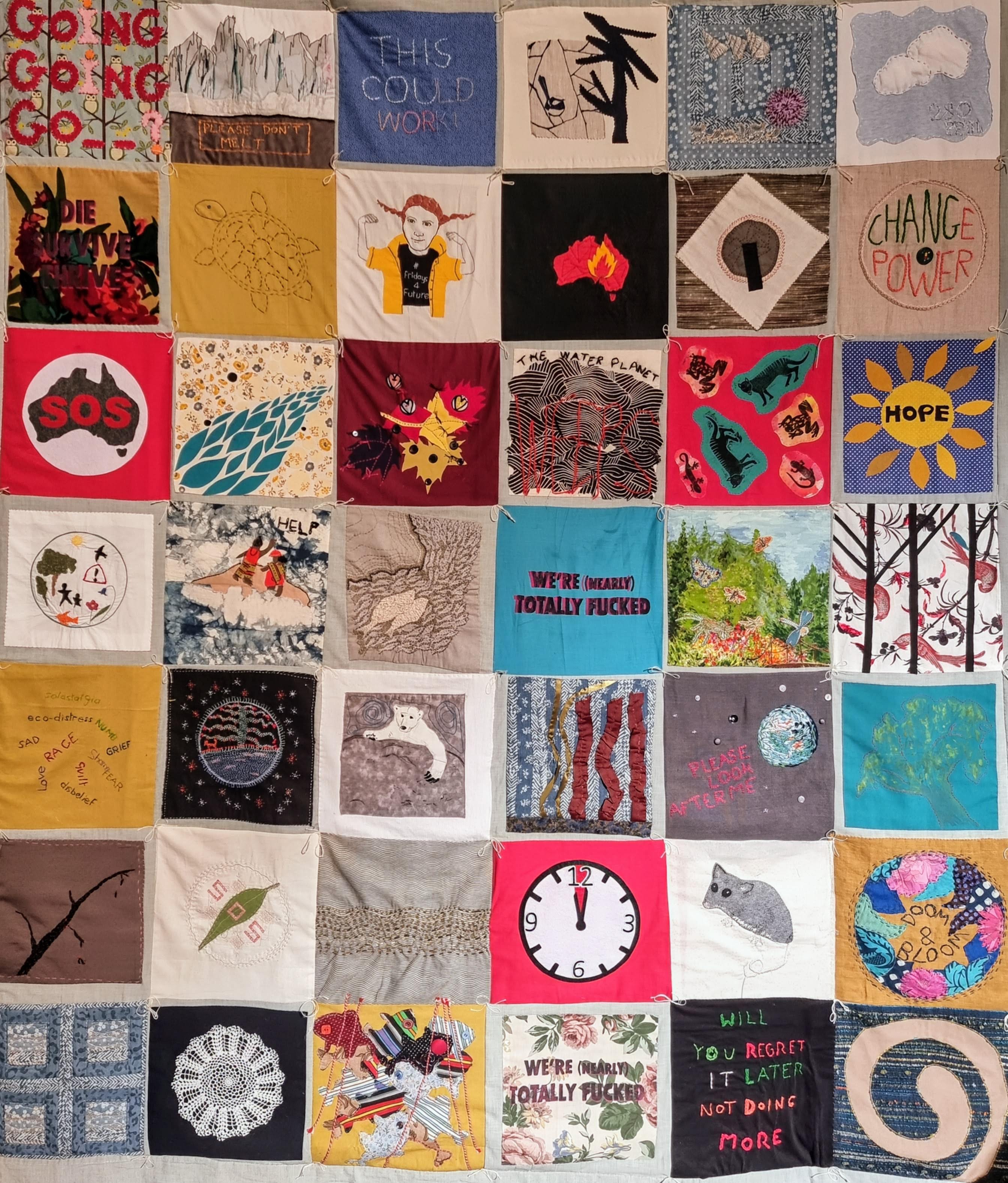I was born into my human animal body, jaundiced and underweight and inextricably connected to myriad beings already here, living on Earth. I like to imagine that tiny person knew, on a cellular level, that she belonged to an astoundingly sophisticated ecosystem that would lovingly provide her with the perfect conditions for her to grow into existence. I like to imagine that all of us knew, at our arrival, that we are nature, and that all we have to do is remember.
As a child, growing up in inner-city Brisbane, I learned of the ’74 floods through my parents’ stories, as they recalled the shock and disruption that entered their lives and the landscape. My mother was pregnant with me at the time and was an operator on the city council’s switchboard. For weeks she worked well into the night, manually connecting the influx of calls from people who were confused and scared.
My first direct experience of ecological distress came in January 2011, as I lifted my belongings to the top floor of my home in West End, Meanjin, and fled from the rising river. I remember the weight of uncertainty and despair for what was happening and what would be lost. I worried about the old figs and critters whose home was the riverbank.
Later in 2011, I tree-changed over the border to Bundjalung Country where I now tend a dozen acres of wet sclerophyll forest. Rising tall at the centre of the Tweed Caldera is Wollumbin: the sacred mountain whose steadying presence is palpable to me. I feel my belonging to this rivered region, and successive disasters—the 2017 floods, the Black Summer fires of 2019, more flooding in 2022—have shaken us up and brought us together as a community. Looking away from the realities of climate change is impossible.
"Looking away from the realities of climate change is impossible."
After the fires missed my forested village, my guilt-ridden relief and a desire to do something, pulled me towards Psychology for a Safe Climate. PSC founder, Carol Ride, introduced me to Sally Gillespie, who has since become a mentor and friend. The sense of connection that PSC fosters is essential for climate work, and meeting members IRL at a recent training (Hello, Lody and Aurora!) was wonderful.
At freshly 50, knowing this body has lived more years than it has left, I cherish the earthly things I know I’ll miss: walking and living outside for days at a time; marvelling at a sparkling sky as I drift off to sleep in a flyless tent; sharing a divine meal with good friends; dancing to my favourite tunes; making love; floating in a warm ocean. These sensory joys are antidotal.
Ecological affect can include grief, anger and fear, as well as delight, solace and care. Swimming in these seas—reading, listening, protesting, engaging in groups, finding held spaces—leads me to a bigger picture. I’m becoming more aware of social inequality, climate injustice and my positionality; the problem of human exceptionalism; the impact of hyper individualism; and the harm of ongoing colonisation. When I hear others talk about this time as an invitation to repair relationships and heal wounds, my heart glows. I want it to be so.
" I recognise that our changing climate is changing me—the dance of learning and unlearning, hearing a call and responding, holding spaciously when I’m clinging—its rhythm expands me."
I recognise that our changing climate is changing me—the dance of learning and unlearning, hearing a call and responding, holding spaciously when I’m clinging—its rhythm expands me. I honour the Ancestral beings, like the rivers and creeks and mountains where I live, whose love is forgiving and limitless. I am grateful for the generous sharing of First Nations Peoples whose lifeways have never forgotten our interconnectedness. It helps me feel that radical change is possible.
*****
Catherine Falco (she/her) lives on the unceded lands of the of the Moorung-Moobah on Bundjalung Country. She is a psychologist, systemic family therapist and PhD candidate with The University of Sydney’s Ecological Emotions Research Lab and the University Centre for Rural Health in Lismore.





